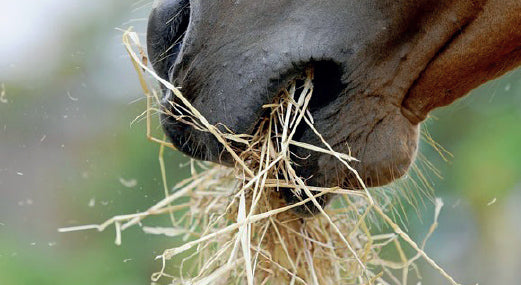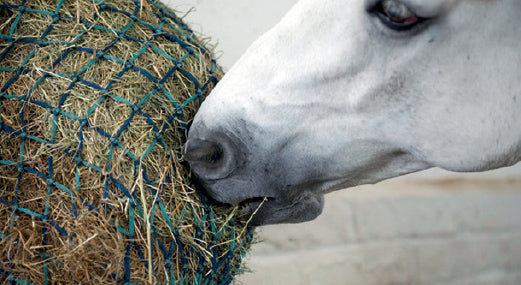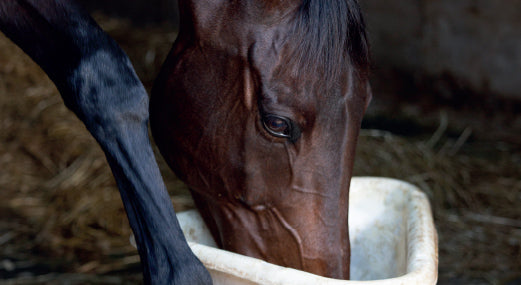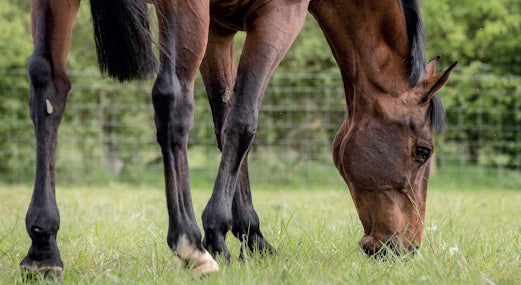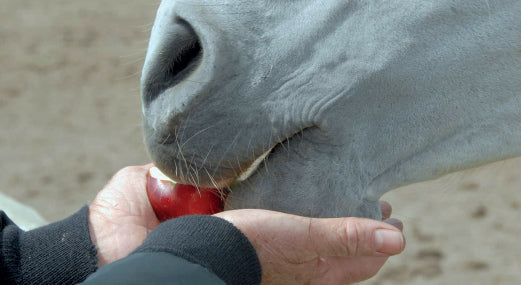Knowledge Base
Can the type of hay fed influence equine dental health?
Background
Equine dental health is linked with wellbeing. Where diets are high in water-soluble carbohydrates (WSC) there is increased risk of peripheral caries in the molar teeth. Because horse teeth continually eru...
Read More
What do horses experience when travelling in a trailer?
Background
Horses are travelled for many reasons. During travelling, horses are exposed to multi-dimensional movements and other stressful stimuli such as noise. Understanding what motion and additional energy demand...
Read More
Does obesity awareness help equine caregivers manage their horses’ weight?
Background
Obesity is a significant welfare issue in the UK leisure horse population. Weight management strategies can be impacted by the understanding and awareness of body condition by equine caregivers. How caregiv...
Read More
What is the awareness of concussion in adult horse riders, and what are typical attitudes and behaviours?
Concussion is classed as a mild form of traumatic brain injury (TBI) and can lead to significant and prolonged symptoms, even after a ‘mild’ injury. Equestrian sports, along with cycling and rugby are associated with ...
Read More
How does being ridden by different people affect horses’ responses to training?
Riders differ in many aspects including skill, experience, gender, weight, height, and riding style. These differences likely impact on horses ridden by different riders and may result in training cues being applied i...
Read More
How do changes to a normal feeding routine affect equine behaviour?
Consistent management regimes are recommended in the care of horses to minimise the incidence of digestive issues and stereotypic behaviours. Predictable feeding times support good welfare and minimise environmental d...
Read More
Does withholding forage feed affect the faecal bacterial microbiota in healthy horses?
Changes in faecal bacteria populations are associated with gastrointestinal disease in a range of species. Horses presenting with colic have been shown to have a decreased diversity and species richness of faecal and ...
Read More
Can a calcium supplement derived from seaweed, affect the pH of gastric juice in horses?
The horse’s stomach consists of an upper non-glandular (squamous) area and a lower glandular area. The glandular area secretes acidic gastric juices, essential to support digestion. The non-glandular area lacks suitab...
Read More
How do horses and humans differ in their preference for treats?
The use of treats for companion animals is common. The use of treats by equine caregivers is increasing, although has been little studied to date, especially in comparison to treat use and choice for other companion s...
Read More
How does the packaging of horse treats affect their palatability and shelf-life?
The use of treats in animal training and management is becoming commonplace. The packaging that treats are stored and sold in varies but should protect the contents from environmental challenges and maintain the integ...
Read More
Does Light Therapy Aid Wound healing?
Light‐emitting diodes (LEDs) are commonly used for treating a variety of disorders in horses, including wounds. Despite anecdotal claims that these LEDs shorten healing times, there is a lack of scientific evaluation ...
Read More
Is obesity linked to low grade systemic inflammation in horses?
It is well recognised that human obesity is linked with systemic inflammation and predisposes the individual to multiple diseases. However, it is unproven if obese equines also produce more inflammatory mediators and ...
Read More


